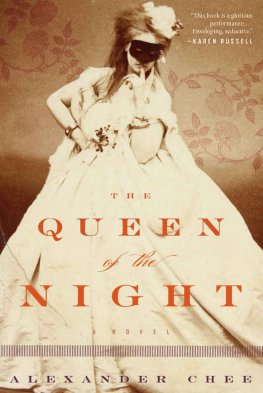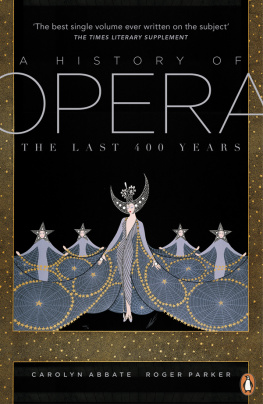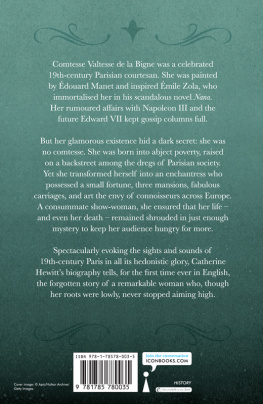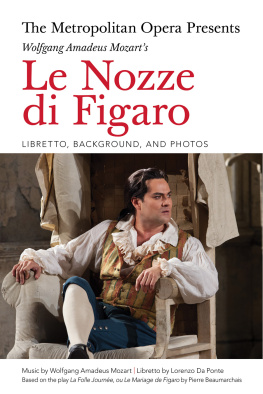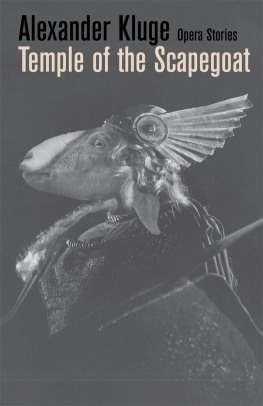Alexander Chee
The Queen of the Night
This novel is for D. S., who likes to write his initials in his books.
WHEN IT BEGAN, it began as an opera would begin, in a palace, at a ball, in an encounter with a stranger who, you discover, has your fate in his hands. He is perhaps a demon or a god in disguise, offering you a chance at either the fulfillment of a dream or a trap for the soul. A comic element the soprano arrives in the wrong dress and it decides her fate.
The year was 1882. The palace was the Luxembourg Palace; the ball, the Snat Bal, held at the beginning of autumn. It was still warm, and so the garden was used as well. I was the soprano.
I was Lilliet Berne.
The dress was a Worth creation of pink taffeta and gold silk, three pink flounces that belled out from a bodice embroidered in a pattern of gold wings. A net of gold-ribbon bows covered the skirt and held the flounces up at the hem. The fichu seemed to clasp me from behind as if alive how had I not noticed? At home it had not seemed so garish. I nearly tore it off and threw it to the floor.
Id paid little attention as Id dressed that evening, unusual for me, and so I now paused as I entered, for the mirror at the entrance showed to me a woman I knew well, but in a hideous dress. As if it had changed as Id sat in the carriage, transforming from what I had thought Id put on into this.
In the light of my apartment I had thought the pink was darker; the gold more bronze; the bows smaller, softer; the effect more Italian. It was not, though, and here in the ancient mirrors of the Luxembourg Palace, under the blazing chandeliers, I saw the truth.
There were a few of us who had our own dressmakers forms at Worths for fitting us when we were not in Paris, and I was one, but perhaps he had forgotten me, confused me with someone else or her daughter. It would have been a very beautiful dress, say, for a very young girl from the Loire. Golden hair and rosy cheeks, pink lipped and fair. Come to Paris and I will get you a dress, her Parisian uncle might have said. And then we will go to a ball. It was that sort of dress.
Everything not of the dress was correct. The woman in the mirror was youthful but not a girl, dark hair parted and combed close to the head, figure good, posture straight, and waist slim. My skin had become very pale during the Siege of Paris some years before and never changed back, but this had become chic somehow, and I always tried to be grateful for it.
My carriage had already driven off to wait for me, the next guests arriving. If I called for my driver, the wait to leave would be as long as the wait to arrive, perhaps longer, and I would be there at the entrance, compelled to greet everyone arriving, which would be an agony. A footman by the door saw my hesitation at the mirror and tilted his head toward me, as if to ask after my trouble. I decided the better, quicker escape for now was to enter and hide in the garden until I could leave, and so I only smiled at him and made my way into the hall as he nodded proudly and shouted my name to announce me.
Lilliet Berne, La Gnrale!
Cheers rang out and all across the room heads turned; the music stopped and then began again, the orchestra now performing the refrain from the Jewel Song aria from Faust to honor my recent performances in the role of Marguerite. I looked over to see the director salute to me, bowing deeply before turning back to continue. The crowd began to applaud, and so I paused and curtsied to them even as I hoped to move on out of the circle of their agonizing scrutiny.
At any other time, I would have welcomed this. Instead, I nearly groaned into my awful dress.
The applause deepened, and as they began to cheer again, I stayed a moment longer. For I was their creature, Lilliet Berne, La Gnrale. Newly returned to Paris after a year spent away, the Falcon soprano whose voice was so delicate it was rumored she endangered it even by speaking, her silences as famous as her performances. This voice was said to turn arias into spells, hymns into love songs, simple requests into commands, my suitors driven to despair in every country I visited, but perhaps especially here.
In the Paris press, they wrote stories of me constantly. I was receiving and rejecting gifts of incomprehensible splendor; men were leaving their wives to follow me; princes were arriving bearing ancient family jewels, keys to secret apartments, secret estates. I was unbearably kind or unbelievably cruel, more beautiful than a woman could be or secretly hideous, supernaturally pale or secretly mulatto, or both, the truth hidden under a plaster of powder. I was innocent or I was the devil unleashed, I had nearly caused wars, I had kept them from happening. I was never in love, I had never loved, I was always in love. Each performance could be my last, each performance had been my last, the voice was true, the voice was a fraud.
The voice, at least, was true.
In my year away, the theaters that had once thrilled me La Scala in Milan, La Monnaie in Brussels, the Mariinsky in Saint Petersburg no longer excited me as they once did. I stayed always in the apartments given over to the company singers, and soon it seemed as if the rooms were a single place that stretched the length of Europe and opened onto its various capitals.
The details of my roles had become the only details of my life. Onstage, I was the druidic priestess, the Hebrew slave in Egypt, the Parisian courtesan dying of consumption, the beautiful orphan who sang as she walked in her sleep, falling into and out of trouble and never waking up until the end. Offstage, I felt dim, shuttered, a prop, the stick under the puppet. I seemed a stranger to myself, a changeling placed here in my life at some point I couldnt remember, and the glass of the mirror at the entrance to the palace seemed made from the same amber of the dream that surrounded me, a life that was not life, and which I could not seem to escape no matter where I went or what I sang.
And so their celebration of me that night at the ball, sincere as it was, felt as if it were happening in the life neighboring mine, visible through a glass.
I tell you I was distracted, but it was much more than that. For I was also focused intensely, waiting for one thing and one thing only, my attention turned toward something I couldnt quite see but was sure was there, coming for me through the days ahead. Id had a premonition in accepting the role of Marguerite that, in returning to Paris this time, I would be here for a meeting with my destiny. Here I would find what would transform me, what would return me to life and make this life the paradise I was so sure it should be.
I had been back in Paris for a little more than a month now, though, and my hopes for this had not yet come true, and so I waited with an increasingly dull vigilance, still sure my appointed hour was ahead of me, and yet I did not know what it was or where it would be.
It was here, of course.
I rose finally from a third curtsy and was halfway to the doors to the terrace when I noticed a man crossing the floor quickly, dressed in a beautiful new evening suit. He was ruddy against the white of his shirt and tie, if handsomely so. His hair was neatly swept back from his face, his blond moustache and whiskers clean and trim, his eyes clear. I nodded as he came to stand before me. He bowed gravely, even ostentatiously.
Forgive me this intrusion! he said, as he stood upright. The diva who throws her suitors diamonds in the trash. The beggars of Paris must salute as you walk by before they carry your garbage shoulder high.
I made to walk past him, though I smiled to think of his greeting. I had, in fact, thrown diamonds in the garbage twice, a feint each time. My maid knew to retrieve them. I did it once to make sure the story would be told in the press, the second time for the story to be believed. I was trying to teach my princes to buy me dresses instead of jewels jewels had become ostentatious in the new Paris, with many reformed libertines now critical of the Empires extravagance, and there was little point to a jewel you couldnt wear.

